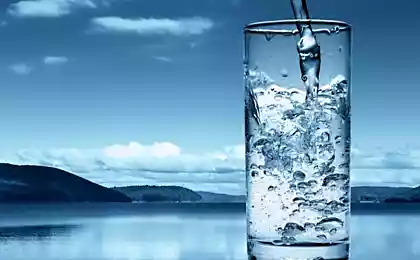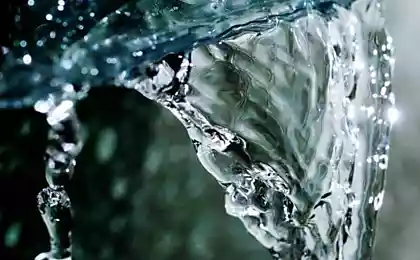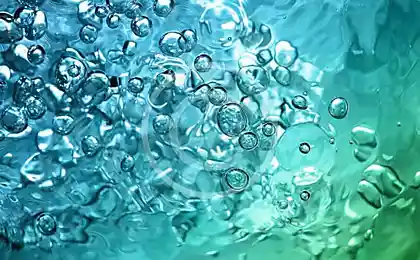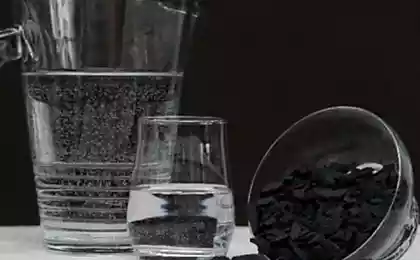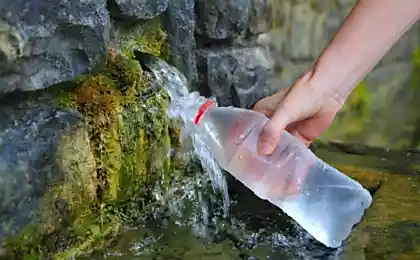612
Minerals in the water: the shocking truth!
Let me get this straight?
Have You ever thought ever about how many minerals should contain drinking water? The answer to this question is crowned with a huge amount of threat bias. Let's finally be clear about how really things are here! To place all points over i, it is important to understand the nature of the minerals exist in several forms, with quite different effects on the human body.
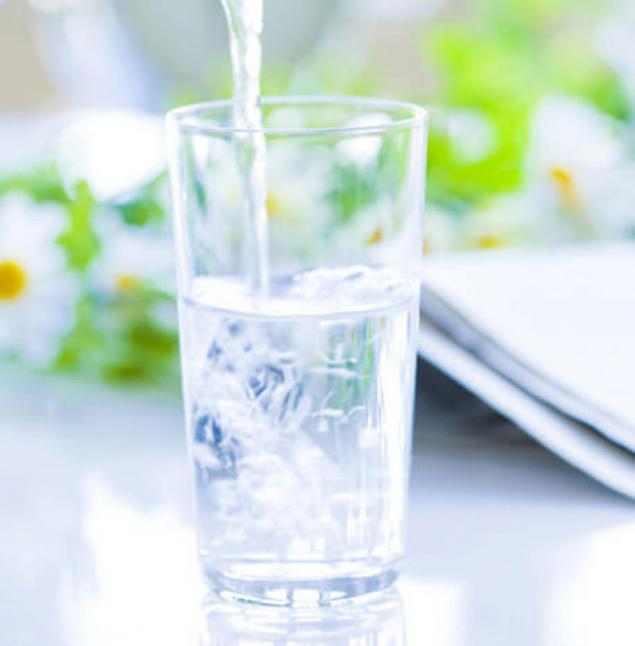
Minerals in the water
A huge number of minerals on Earth is in inorganic form. They are alien to humans – their entry into the body leads to the formation of kidney stones, deposits of salts in joints and blood vessels. As a result of deposits of inorganic minerals from the blood vessels in the literal sense of "turn to stone", losing elasticity, which causes a range of problems with the cardiovascular system. In addition, many minerals in the water are heavy metals (lead, aluminum, zinc, iron, copper, etc.) and accumulate in the body, poisoning it from the inside.
Doctor of medicine from Germany Barbara Hendel (Hendel Barbara) in his book "Pure water" ("Wasser vom Reinsten") writes: "the Minerals in water are in inorganic form. As they are very difficult to digest, inhibit exchange processes in the human body, but, nevertheless, a small percentage of the total content in the water (about five percent) of the organism can be learned".
The 5% of the minerals present in water are ionic, that is free, not bound in compound form. They are fully absorbed by the body and is easily included in the process of metabolism. Their number, consumption of water is negligible compared to the daily needs of the body in these minerals. Therefore, it is considered a significant drinking water source is vital to the health of minerals wrong!
Minerals for health
Supplier of minerals for humans is food in it the minerals are organically bound form. These are the minerals primarily involved in the construction of all tissues and organs of Your body. Plants (during photosynthesis in sunlight) is able to extract from the soil inorganic minerals and turn them into organic form. This was in the middle of the last century, wrote the world-famous American expert in the field of health Paul Bragg in his book "the Shocking truth about water and salt": "Only living plants can convert inorganic minerals into organic."
The most important functions of water
The water in our body carries more than 40 important functions, playing a key role in all life processes. Doctor of medicine from Austria Franz Heininger (Franz Heininger) in his scientific work "Drinking water" ("Trink Wasser") writes: "the Main value of water is the dissolution and delivery of food to the cells and dissolving and removal from the body of waste products of cells."
To reduce the magnification power
Full cleansing function in the body performs only free from impurities water with mineral content less than 50 mg/l, and in ionic form. Is physiologically optimal drinking water with increased mineralization up to 30 mg/l. this directly States doctor of medicine from Germany Andreas Fallin (Andreas Fellin): "the best water is natural water with minimal mineral content, dry residue which is less than 30 mg per liter. An example of such water is water from glaciers. It has long been observed that long-lived during the life of the used ice or a similar composition of water.
The German Professor Eduard David explains: "the history of biological development of man, his genetic conditions and needs of the rain, melting, mountain and glacier water, not rich in minerals... From a medical point of view, the use of purified water with mineral content less than 20 mg/l can only be welcomed". In fact, the purer and nenasyschennye minerals, the water, the more harmful substances it is able to dissolve and withdraw from the body.
Surprisingly, while almost all in the stores the water has a salinity above 50 mg/l and over 100 mg/L. Therefore, carefully read the information on the label of the bottle of water that You intend to purchase. As for tap water, spring, water from wells and boreholes, there is often an index of mineralization is more than 200 mg/l. But 95% of them are inorganic minerals!
No "but..."!
But does low salinity water leads to the leaching of minerals from the body? Not at all! This popular myth dispels many scientists today, one of them a doctor of medicine from Austria Franz Heininger: "Who's afraid of that water with low mineral content can lead to osteoporosis due to the leaching of calcium from the body, in order to reassure. Water with low mineral content are not capable of dissolving the organically associated minerals, and, consequently, cannot withdraw them from the body. It is able to dissolve and withdraw only inorganic minerals, deposits of which zachekanivajut the human body".
Paul Bragg said frankly: "to be 100% healthy, the body must be absolutely clean and free of deposits of inorganic minerals that are dissolved in the water from the tap, and also in the waters of lakes, rivers, wells and other sources".
Drink clean water with low content of minerals, and Your body will effectively get rid of toxins, biochemical reactions begin to occur that will definitely contribute to Your great health and well-being.
P. S. And remember, only by changing their consumption — together we change the world! ©
Join us in Facebook , Vkontakte, Odnoklassniki
Source: vegjournal.ru/krasota/zdorove/1053-mineraly-v-vode-mif-i-realnost.html
Have You ever thought ever about how many minerals should contain drinking water? The answer to this question is crowned with a huge amount of threat bias. Let's finally be clear about how really things are here! To place all points over i, it is important to understand the nature of the minerals exist in several forms, with quite different effects on the human body.

Minerals in the water
A huge number of minerals on Earth is in inorganic form. They are alien to humans – their entry into the body leads to the formation of kidney stones, deposits of salts in joints and blood vessels. As a result of deposits of inorganic minerals from the blood vessels in the literal sense of "turn to stone", losing elasticity, which causes a range of problems with the cardiovascular system. In addition, many minerals in the water are heavy metals (lead, aluminum, zinc, iron, copper, etc.) and accumulate in the body, poisoning it from the inside.
Doctor of medicine from Germany Barbara Hendel (Hendel Barbara) in his book "Pure water" ("Wasser vom Reinsten") writes: "the Minerals in water are in inorganic form. As they are very difficult to digest, inhibit exchange processes in the human body, but, nevertheless, a small percentage of the total content in the water (about five percent) of the organism can be learned".
The 5% of the minerals present in water are ionic, that is free, not bound in compound form. They are fully absorbed by the body and is easily included in the process of metabolism. Their number, consumption of water is negligible compared to the daily needs of the body in these minerals. Therefore, it is considered a significant drinking water source is vital to the health of minerals wrong!
Minerals for health
Supplier of minerals for humans is food in it the minerals are organically bound form. These are the minerals primarily involved in the construction of all tissues and organs of Your body. Plants (during photosynthesis in sunlight) is able to extract from the soil inorganic minerals and turn them into organic form. This was in the middle of the last century, wrote the world-famous American expert in the field of health Paul Bragg in his book "the Shocking truth about water and salt": "Only living plants can convert inorganic minerals into organic."
The most important functions of water
The water in our body carries more than 40 important functions, playing a key role in all life processes. Doctor of medicine from Austria Franz Heininger (Franz Heininger) in his scientific work "Drinking water" ("Trink Wasser") writes: "the Main value of water is the dissolution and delivery of food to the cells and dissolving and removal from the body of waste products of cells."
To reduce the magnification power
Full cleansing function in the body performs only free from impurities water with mineral content less than 50 mg/l, and in ionic form. Is physiologically optimal drinking water with increased mineralization up to 30 mg/l. this directly States doctor of medicine from Germany Andreas Fallin (Andreas Fellin): "the best water is natural water with minimal mineral content, dry residue which is less than 30 mg per liter. An example of such water is water from glaciers. It has long been observed that long-lived during the life of the used ice or a similar composition of water.
The German Professor Eduard David explains: "the history of biological development of man, his genetic conditions and needs of the rain, melting, mountain and glacier water, not rich in minerals... From a medical point of view, the use of purified water with mineral content less than 20 mg/l can only be welcomed". In fact, the purer and nenasyschennye minerals, the water, the more harmful substances it is able to dissolve and withdraw from the body.
Surprisingly, while almost all in the stores the water has a salinity above 50 mg/l and over 100 mg/L. Therefore, carefully read the information on the label of the bottle of water that You intend to purchase. As for tap water, spring, water from wells and boreholes, there is often an index of mineralization is more than 200 mg/l. But 95% of them are inorganic minerals!
No "but..."!
But does low salinity water leads to the leaching of minerals from the body? Not at all! This popular myth dispels many scientists today, one of them a doctor of medicine from Austria Franz Heininger: "Who's afraid of that water with low mineral content can lead to osteoporosis due to the leaching of calcium from the body, in order to reassure. Water with low mineral content are not capable of dissolving the organically associated minerals, and, consequently, cannot withdraw them from the body. It is able to dissolve and withdraw only inorganic minerals, deposits of which zachekanivajut the human body".
Paul Bragg said frankly: "to be 100% healthy, the body must be absolutely clean and free of deposits of inorganic minerals that are dissolved in the water from the tap, and also in the waters of lakes, rivers, wells and other sources".
Drink clean water with low content of minerals, and Your body will effectively get rid of toxins, biochemical reactions begin to occur that will definitely contribute to Your great health and well-being.
P. S. And remember, only by changing their consumption — together we change the world! ©
Join us in Facebook , Vkontakte, Odnoklassniki
Source: vegjournal.ru/krasota/zdorove/1053-mineraly-v-vode-mif-i-realnost.html
The car brand Morgan will be hybrid in three years
Louise hay: Never under any circumstances criticize yourself!
